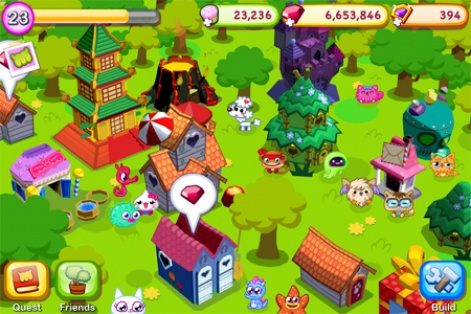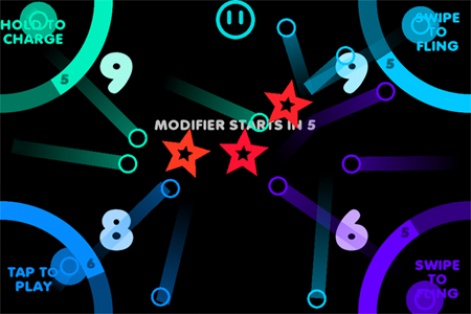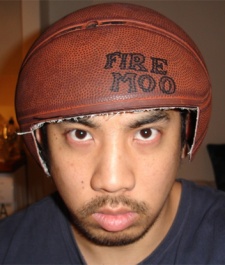He's currently working at Mind Candy as Mobile Tech Lead - all while working on his indie game, Ring Fling, in his spare time.
Five years ago, I was living in Los Angeles, working for Insomniac Games. It wasn't far off from this time of year when I decided to grab lunch with a coworker.
I didn't know it then, but this lunch was going to lead to me picking up my entire life and moving to London.
He had recently returned from a trip through Europe and informed me that he intended to move to London to work for a little upstart called Media Molecule. I asked him why and the answer was simple: "They only have 20 people."
The two of us had very similar stories. We were each hired as programmers at Insomniac and saw it grow from a company with double digit headcount to triple digit headcount.
We were both promoted to management positions, but each struggled to adapt from a world of just getting stuff done to a world of departments and middle management.
The Goldilocks problem
Back then, I saw headcount as the single most important thing about a company and the words "they only have 20 people" were enough to get me to buy my first plane ticket to transport my life across the Atlantic.
Since then, I've worked in a number of companies of varying sizes.
I worked in my own start up of 2.2 people. I worked remotely for a company of 20. And now now I find myself split across my indie projects as a team of one, and working my day job at Mind Candy, a company that's rapidly grown from a double digit headcount to a triple digit headcount.

Mind Candy's mammoth Moshi Monsters IP
I kind of feel like I've been the Goldilocks of the video game industry and I'm hoping that I've found "just right."
This one is too big
My experience at Insomniac was incredible.
It was my first job in the video game industry and they treated me incredibly. I worked on games that were sold well, reviewed well, and were a lot of fun to make.
The thing I struggled with, though, was coordinating a massive creative endeavour across a hundred or so people. When you've got a machine with so many pieces, it takes a Herculean effort to get all the gears synchronised and meshed together.
You've got to plan everything massively ahead of time. You can't really afford for every cog in the system to have its own idea of how it would like to work or what it thinks the machine should be trying to do.
And the more you work in this system, the more you become a particular cog with a particular purpose spinning over and over and over again.
This one is too small
I recently launched Ring Fling for iOS. I like to say that it's the first game I made by myself, but I actually still needed to get loads of help from my friends for bits and pieces here and there.
The great thing is that it was liberating.
Whatever ideas popped into my head, I could just do it. I didn't have to schedule any meetings. I didn't have to write a document. I didn't even need to tell anyone. I just opened my computer and made it so.

Moo's own Ring Fling
On the other hand, I realised the value of all the other cogs in the machine.
With no art, I had to make a game about circles and stars. Without any game designers, I had to just do my best to make something coherent. With no marketing team, I was at the mercy of Twitter and would just have to hope that journalists would find my emails worth reading.
It was exhilarating to try so many things, but the end result was definitely nowhere near enough to make a living wage off of.
This one is just right
Now I find myself to have come full circle again. I'm at a successful company that was double digits when I joined and has grown into triple digits.
But there's something different this time.
There are definitely a hundred something people marching under the Mind Candy banner, but if you take a slightly closer look, it's ten or fifteen teams that each have a role to play, but can make their own minds up about how they get things done.
We've each got a battle to fight in this war. It might be the moshimonsters.com team figuring out the next big feature, or the missions team plotting the course for Super Moshis. It could be my team, the mobile team, creating Mind Candy quality experiences on mobile devices or might even be one of the teams on top secret projects.
They key is that none of these teams is big enough that you're a little cog in a big machine.
All the teams are small enough that everyone needs to be thinking about where we're going and what we're doing and where you've got to operate outside your comfort zone for a decent chunk of your working life.
But still, you have the might of a proper professional marketing team and incredible programmers, artists and the like.
It may seem to be a bit greedy of me to want to work on big successful projects with all the benefits of working on small teams and I'd probably be served right if there were no such thing.
But I, for one, definitely believe in the idea of a LittleBigCompany.
You can find out more about Mind Candy on the company's website, or follow Moo's indie efforts on his personal blog.
For up-to-the-minute updates, you can follow Moo on Twitter, too.





















